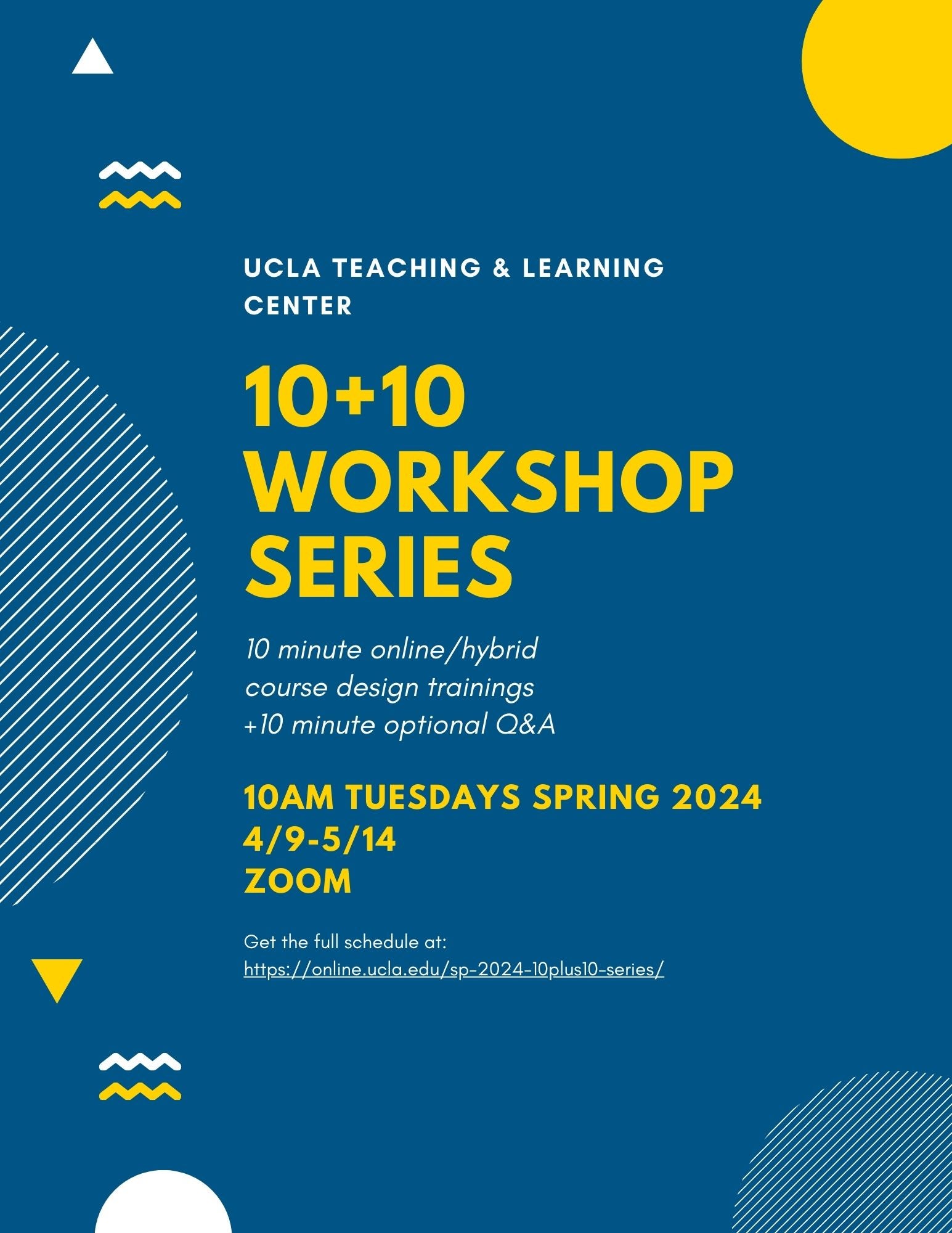Spring 2024 10+10 Pop-up Series
Spring 2024 10+10 Pop-up Series
In spring quarter 2024, the Teaching and Learning Center (TLC) instructional designers are offering a series of seven pop-up sessions – each just 10 minutes in length – on focused, specific topics related to online/hybrid course design.
Each of these 10 + 10 sessions will take place at 10am every Tuesday in spring quarter 2024, from Week 2 thru Week 7. While the sessions are not recorded, session slides and resources will be made available in this 10+10 Pop-ups Series Bruin Learn site. Individuals can self-enroll in this site using this URL: https://bruinlearn.ucla.edu/enroll/C6KRL6
Zoom link for all sessions: https://ucla.zoom.us/j/98654413254?pwd=SXAzcUFsS1VpM0doU0tQUy9hKzdodz09
Meeting ID: 986 5441 3254 Passcode: 196561
Schedule of Topics
Note: Because of the 10 minute duration, sessions will start promptly at 10:00 am.
Add a Template to Your New Bruin Learn Course Site
04/09 10:00-10:20 am
#coursedesign #savetime
Facilitator: Kate Schaller
Giving Feedback in Bruin Learn Speedgrader
04/16 10:00-10:20 am
#tips #workload #morewithless #saveyourfeedback #justclickit #rubrics
Facilitator: Mark Kayser
Handling Large Classes with Fewer TAs: Some Strategies
04/23 10:00-10:20 am
#workload #student interaction #morewithless
Facilitator: Brittany Goodwell
Inserting Images into Bruin Learn Pages and Assignments
04/30 10:00-10:20
#alttext #designtools #pixels #sizing
Facilitator: Agustin Rios
Sequencing Learning Material in a Module
05/07 10:00- 10:20 am
#learnerpathway #studentperspective #whatsnext
Facilitator: Sirui Wang
Design a Grading Rubric using Generative AI (ChatGPT)
05/14 10:00-10:20 am
#prompt #input #checkit #refineit
Facilitator: Kim DeBacco

